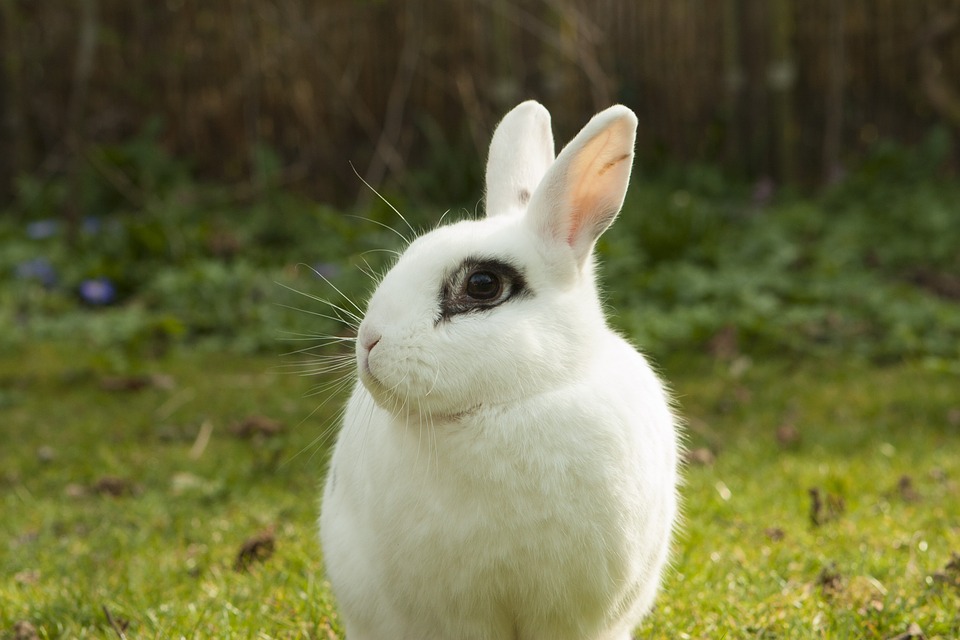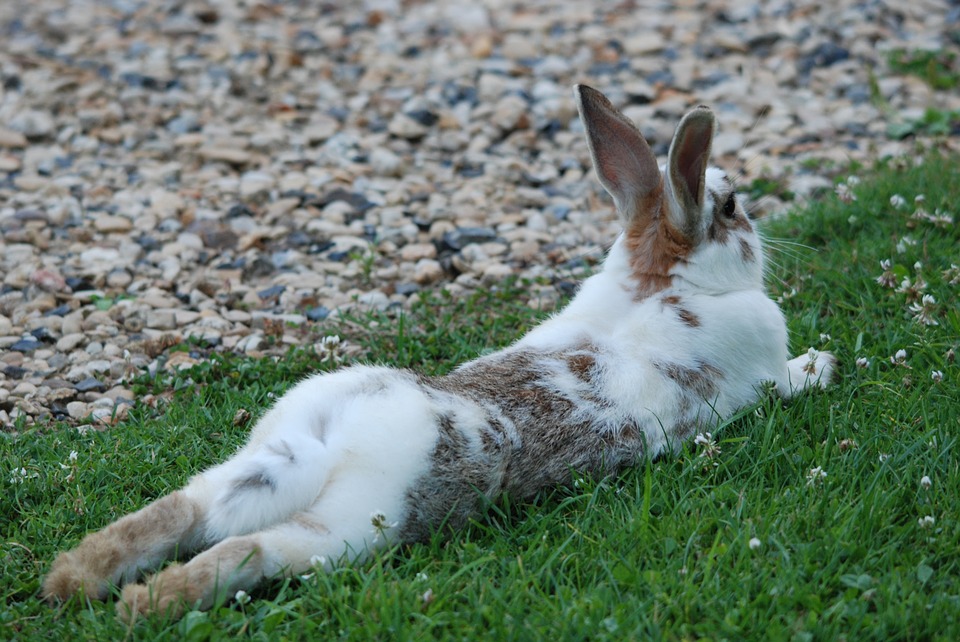This comprehensive guide will delve into the world of beets and their suitability for rabbit consumption. We'll examine the nutritional value, potential risks, optimal feeding practices, and everything you need to know to ensure your furry friend enjoys this colourful treat safely.
Part 1: The Nutritional Value of Beets

1.1. A Treasure Trove of Vitamins and Minerals
Beets are a nutritional powerhouse, offering a wide array of vitamins and minerals essential for a rabbit's well-being.
- Vitamin C: A key player in maintaining a strong immune system, aiding wound healing, and promoting overall health.
- Vitamin A: Crucial for maintaining healthy vision, promoting skin health, and supporting growth and development.
- Vitamin K: Essential for blood clotting, helping to prevent excessive bleeding.
- Potassium: Plays a vital role in muscle function, nerve transmission, and maintaining fluid balance.
- Folic Acid: A key component in the production of red blood cells, which carry oxygen throughout the body.
- Iron: Essential for carrying oxygen in the blood, ensuring proper energy production.
1.2. Fibre for a Healthy Digestive System
Beets are a good source of dietary fibre, a crucial element for maintaining healthy digestion in rabbits. Fibre helps to:
- Regulate Bowel Movements: Ensures consistent and regular waste elimination.
- Promote Gut Health: Supports a balanced gut microbiome, essential for optimal digestion and nutrient absorption.
- Prevent Gastrointestinal Issues: Helps prevent common rabbit digestive problems such as hairballs, constipation, and diarrhoea.
1.3. Antioxidants for Cellular Protection
Beets are rich in antioxidants, compounds that protect the body against damage from free radicals. Free radicals are unstable molecules that can contribute to cell damage and aging. Antioxidants help neutralize these harmful molecules.
Part 2: The Benefits of Feeding Beets to Rabbits

2.1. Boosting the Immune System
The vitamin C content in beets provides a natural boost to the rabbit's immune system, making them more resilient to infections and illnesses.
2.2. Promoting Healthy Skin and a Shiny Coat
The vitamins A and K in beets contribute to healthy skin and a glossy coat. Vitamin A is crucial for skin cell production, while vitamin K aids in blood clotting, which helps to prevent excessive bleeding from minor skin injuries.
2.3. Supporting Digestive Health
The high fibre content in beets promotes a healthy digestive system, reducing the risk of digestive problems such as hairballs, constipation, and diarrhoea.
2.4. Providing a Moderate Energy Boost
Beets offer a moderate amount of energy, which can be beneficial for active rabbits. However, it's important to remember that beets should be offered as a treat and not a primary source of energy.
Part 3: Potential Risks of Feeding Beets
3.1. Sugar Content: A Double-Edged Sword
While beets offer valuable nutrients, they also contain natural sugars. Excess sugar intake can contribute to:
- Obesity: A significant risk for rabbits, leading to health problems such as joint issues, heart disease, and diabetes.
- Dental Problems: Sugar can contribute to tooth decay and gum disease in rabbits, which can lead to pain and difficulty eating.
3.2. Oxalates: A Potential Concern for Kidney Health
Beets contain oxalates, compounds that can bind with calcium in the body and potentially hinder its absorption. This is more of a concern for rabbits with existing kidney issues. However, the oxalate content in beets is relatively low, and they are unlikely to cause problems for healthy rabbits.
3.3. Fibre Overload: Too Much of a Good Thing
While fibre is essential for rabbit digestion, too much fibre can lead to digestive upset, including diarrhoea and gas.
3.4. Allergies: A Rare But Possible Reaction
Some rabbits may be allergic to beets, exhibiting symptoms such as diarrhoea, vomiting, or skin irritation.
Part 4: How to Feed Beets to Your Rabbit
4.1. Choosing the Right Beets
Select fresh, organic beets whenever possible. Look for beets that are firm, free from blemishes, and have a vibrant colour. Avoid beets that are bruised, damaged, or have signs of mould.
4.2. Preparing Beets for Your Bunny
- Wash Thoroughly: Scrub the beets under running water to remove any dirt or residue.
- Remove Stems and Leaves: Trim off any leaves or stems as these contain higher concentrations of oxalates than the root.
- Cook or Roast: Cook or roast the beets until tender. Raw beets can be difficult for rabbits to digest and may cause digestive problems. Cooking softens the fibre and makes it easier for your bunny to process.
4.3. Determining the Correct Serving Size
Offer beets in moderation, only as a treat. A small piece, about the size of a grape, is sufficient for a medium-sized rabbit. Adjust the amount based on your rabbit's size and weight.
4.4. How Often to Offer Beet Treats
Limit beet treats to 1-2 times per week. Overfeeding beets can lead to health problems due to the sugar content.
Part 5: Recognizing Signs of Beet Overconsumption
It's important to pay attention to your rabbit's health after introducing beets into their diet.
5.1. Digestive Distress Signals
Diarrhoea, gas, bloating, or changes in stool consistency could indicate that your rabbit has consumed too many beets.
5.2. Weight Gain: A Warning Sign
Beets contain sugar, which can lead to weight gain if given excessively. Monitor your rabbit's weight and adjust their treat intake if necessary.
5.3. Dental Issues: The Importance of Regular Checks
Excess sugar can contribute to dental problems in rabbits. Regularly check your rabbit's teeth for signs of overgrown teeth, plaque buildup, or gum disease.
Part 6: Monitoring Your Rabbit's Health
Closely monitor your rabbit's health after introducing beets to their diet.
6.1. Watch for Allergic Reactions
Observe your rabbit for any signs of allergic reaction, such as skin irritation, diarrhoea, or vomiting. If you notice any of these symptoms, discontinue feeding beets and consult your veterinarian.
6.2. Keep a Close Eye on Weight
Ensure your rabbit's weight remains within a healthy range. Weigh your rabbit regularly and adjust their diet accordingly.
6.3. Ensure Healthy Dental Care
Regularly check your rabbit's teeth for signs of dental problems. If you notice any abnormalities, consult your veterinarian.
Part 7: Alternatives to Beets
If your rabbit has an allergy or you are concerned about the sugar content of beets, consider offering other healthy treats:
- Parsley: A good source of vitamin C and vitamin K.
- Cilantro: Provides antioxidants and helps to freshen breath.
- Basil: Contains antioxidants and may help to calm digestive upset.
- Spinach: Rich in vitamins A, C, and K, as well as iron.
- Dandelion Greens: A great source of vitamins, minerals, and fibre.
- Timothy Hay: The primary food source for rabbits, providing essential fibre and nutrients.
- Fresh Grass: A natural and delicious treat for rabbits.
- Pellets: A supplemental food source for rabbits, providing additional nutrients.
Part 8: FAQs: Addressing Common Questions
8.1. Can I give my rabbit the beetroot leaves?
No, beet leaves contain oxalates in higher concentrations than the root, which can be harmful to rabbits.
8.2. Can I give my rabbit beet juice?
It is not recommended to give rabbits beet juice as it is high in sugar and lacks the essential fibre found in the whole vegetable.
8.3. Can baby rabbits eat beets?
It is best to avoid beets for baby rabbits under six months old as their digestive systems are still developing.
8.4. Can I give my rabbit cooked or raw beets?
Cooked beets are best for rabbits as they are easier to digest and less likely to cause digestive upset.
8.5. Can I give my rabbit beet chips?
Beet chips are usually made with added sugar and flavourings, making them unsuitable for rabbits.
8.6. What if my rabbit eats a large amount of beets?
If your rabbit consumes a significant quantity of beets, monitor them closely for any signs of digestive upset or other adverse reactions. If you are concerned, consult your veterinarian.
8.7. Can I give my rabbit beets every day?
No, beets should be given as a treat and not a daily food. Offering beets more than 1-2 times per week could lead to health problems.
8.8. Is it safe to give my rabbit beets if they have kidney issues?
If your rabbit has kidney issues, it's best to consult with your veterinarian before offering them any beet treats. While the oxalate content in beets is relatively low, it's essential to consider your rabbit's specific health condition.
8.9. Are there any other beet-related products that are safe for rabbits?
While beets are generally safe for rabbits when fed in moderation, it's best to avoid beet products that contain added sugar, artificial flavors, or other ingredients that could be harmful to your bunny's health.
Part 9: Final Thoughts: A Balanced Approach to Beet Treats
Beets can be a nutritious and enjoyable treat for rabbits when offered responsibly. By understanding the potential risks and following the guidelines outlined in this article, you can ensure that your furry companion benefits from the nutritional value of beets while avoiding any potential health complications. Remember to always consult with your veterinarian if you have any concerns about your rabbit's diet.
Everyone is watching
-

Do Rabbits Lay Eggs? (The Surprising Truth)
OTHER TYPES OF PETSThis article will unravel the common misconception that rabbits lay eggs, exploring the fascinating world of r...
-

Can Rabbits Eat Grapes? A Guide to Safe Rabbit Treats
OTHER TYPES OF PETSThis comprehensive guide will explore the safety and suitability of grapes for rabbits, providing detailed inf...
-

What's a Group of Rabbits Called? (A Comprehensive Guide)
OTHER TYPES OF PETSThis article delves into the fascinating world of rabbits, exploring the various terms used to describe a grou...
-

Predators That Hunt Rabbits: A Guide to Natural Enemies
OTHER TYPES OF PETSI've always been fascinated by the circle of life, that delicate dance between predator and prey. Growing up ...
-

Are Rabbits Nocturnal Animals?
OTHER TYPES OF PETSThe question of whether rabbits are nocturnal animals is a fascinating one, with a surprisingly complex answer...
